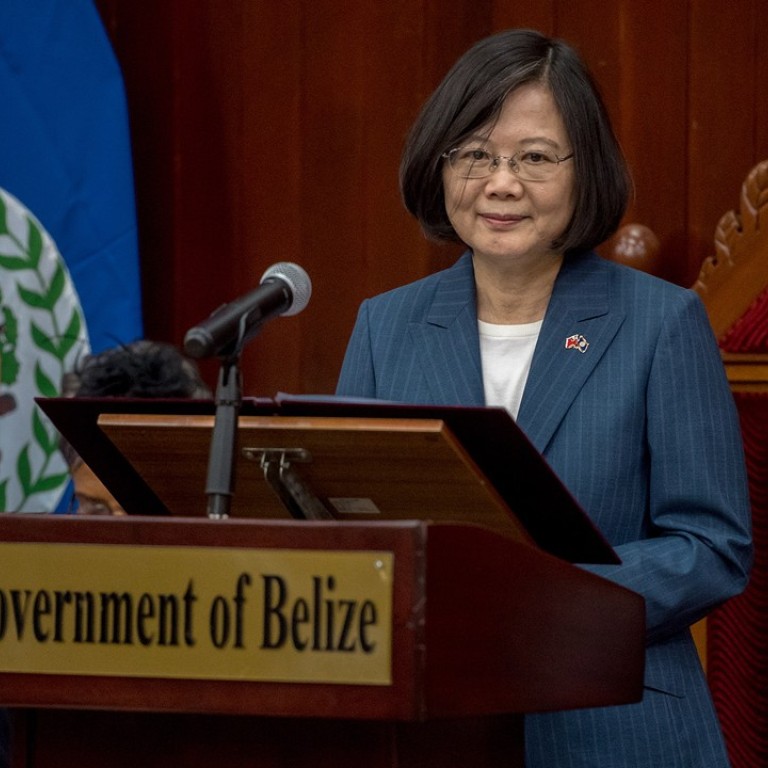
Tsai in risky game as she plays US card to provoke Beijing
As El Salvador becomes the latest country to switch recognition from Taipei, the future of the island lies in maintaining a smooth relationship with the mainland
The best gauge of good relations between governments is a state visit. But for Taiwan, recognised by only 17 small nations after El Salvador switched recognition to Beijing on Monday, the biggest diplomatic prize is a transit stop in the United States. The island’s leader, Tsai Ing-wen, made stopovers in Los Angeles and Houston on her recent trip to Belize and Paraguay, making plain the friendliness of ties with US President Donald Trump’s administration. Such stays are also about opportunities, though; in this case, with local elections in November and a trade war between Beijing and Washington in full swing, that meant shoring up support.
Tsai, at the midway point of her presidential term, is faring poorly in opinion polls. Policies have failed to gain support, despite the economy being stable. With an eye on voters and Trump, she used a speech at the presidential library of late US president Ronald Reagan to speak of freedom and democracy. On her return at the weekend, she became the first leader of Taiwan to visit the Johnson Space Centre, off limits to mainland scientists because of espionage fears. For the first time, Taiwanese media were given full access, being allowed to report on events as they happened.
The warm reception also included Trump’s signing of the National Defence Authorisation Act, which enables bigger arms sales and military exchanges. He previously approved a law that sanctions visits at all levels by officials from both sides and, while president-elect, ignored the recognised one-China principle by having a phone conversation with Tsai. His administration’s strategy of using Taiwan to exert pressure on Beijing pairs with Tsai’s refusal to acknowledge the 1992 consensus that there is only one China. Beijing’s anger is understandable.
Cross-strait relations have not been as bad for a decade. The independence leanings of Tsai and her Democratic Progressive Party ensure a continuation of a freeze in bilateral talks; none have taken place since she took office in 2016. Beijing has held military drills in the Taiwan Strait, adopted coercive policies to ensure foreign websites do not recognise the island as a country and resumed dollar diplomacy to lure away remaining diplomatic partners. Tsai’s stubbornness has hit cross-strait trade, tourism and business links.
Taiwan’s elections in November will be an indicator of public support of Tsai’s policies and her chances of winning a second term in 2020. The outcome may also influence cross-strait relations; a poor showing by the DPP can be interpreted as a rejection of approaches towards the mainland and the US. The island’s future lies in maintaining a smooth relationship with the mainland, not playing the US card to provoke Beijing.

